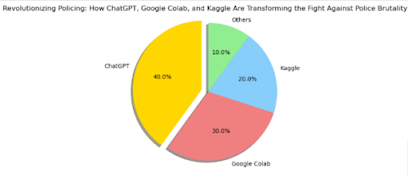The COVID-19 vaccine is required by a judge, or else the man will be arrested and charged.
Brandon Rutherford was recently confronted in an Ohio courtroom with a choice: get vaccinated or risk prison. On August 4, Judge Christopher Wagner of Hamilton County, Ohio sentenced the 21-year-old to two years probation for fentanyl possession. However, his punishment came with a twist: he was required to get a COVID vaccination as a condition of his probation. If Rutherford does not cooperate, he faces up to 18 months in prison.
“I'm not a doctor, but I believe the vaccination is much safer than the fentanyl you had in your pocket,” Wagner told Rutherford.
Wagner offered Rutherford 60 days to be vaccinated and said, "You're going to keep your job." You will not be in the presence of a weapon. I'm going to order you to obtain a vaccination within the next two months and bring it to the probation office." The judge discovered Rutherford's vaccination status only after questioning him when he appeared in court wearing a mask—a policy Wagner instituted for any unvaccinated individuals in his courtroom.
The requirement infuriated Rutherford.
“Can they put me to prison for refusing to take a shot? “I have an issue with that,” he said. “I'm simply doing all I can to get out of here as soon as possible, including seeking work and everything else. However, that little item (COVID vaccination) has the potential to put me back.”
Wagner responded to the judge's order after it caused a commotion.
“Judges make judgments on a defendant's physical and mental health daily, including ordering drug, alcohol, and mental health treatment,” he said in a statement. Additionally, he said that he was responsible for "rehabilitating the defendant and protecting the community."
Wagner is not the first judge in Ohio to take such measures. He joined similar requests made by justices in Franklin and Cuyahoga counties.
Autonomy of the Body
As Rutherford's case clearly illustrates, the world is struggling with the issue of how much power a person should have over their own body in the aftermath of COVID-19. Physical integrity, often known as bodily autonomy, is a long-standing human right and individual liberty concept. In recent years, much of the debate on this subject has focused on the #MeToo movement, which has raised awareness of sexual harassment and abuse in a variety of our institutions. It is self-evident that assaulting another person's body is intrinsically immoral; no one disputes this assumption when addressing sexual assault. Yet, for far too many, such sharp distinctions get muddled by other concerns, particularly when the discussion turns to medical body autonomy. And history demonstrates that the United States has a long, disturbing record of assaulting Americans' physical integrity, especially the disenfranchised and poor.
For instance, in 2017, a court and sheriff in Tennessee implemented a forced sterilization program for prisoners. They enabled inmates to get a 30-day reduction in their sentence provided they consented to the medical treatments. Fortunately, they were sued over this, and the scheme was declared unconstitutional. Daniel Horwitz, the attorney who won this lawsuit, said at the time, "Inmate sterilization is disgusting, ethically repugnant, and unlawful." Forced sterilization of prisoners is hardly the only medical crime against bodily autonomy that has occurred in our history. The Tuskegee Experiment began in 1932 and lasted decades. The research was performed by the United States Public Health Service and the Centers for Disease Control and Prevention (CDC), who lied to 600 black male volunteers about their syphilis status and falsely claimed they were getting free healthcare. In actuality, they received placebos, inadequate therapies, and were refused penicillin—even though it was becoming widely accessible as a cure for syphilis. The specific instance emphasized the need for informed consent in medical treatments and demonstrated how far the nation still needed to go in resolving fundamental rights, such as “The right of the people to be safe in their persons,” as stated in the US Constitution. On a global scale, activists for human rights have waged a long and difficult struggle to establish these fundamental concepts of physical autonomy and informed consent in society. The United Nations adopted the Universal Declaration of Human Rights in 1948. According to Article 3 of this Declaration, "everyone has the right to life, liberty, and personal security."
The date of this Declaration is critical since it followed World War II, a time marked by some of the most egregious abuses of human rights in contemporary history, including widespread scientific and medical experimentation on human beings. The following Nuremberg Trials, which took place between 1945 and 1949, culminated in the 1947 Nuremberg Code, a collection of ten principles addressing issues of human medical research. Nuremberg set a new worldwide norm for ethical medical conduct with the Nuremberg Code. Within the parameters of its specifications? Consent of the human subject voluntarily and informedly. Then, in 1966, the International Covenant on Civil and Political Rights stated in Article 7: "No one should be tortured or subjected to cruel, barbaric, or degrading treatment or punishment." Nobody will be subjected to medical or scientific experiments without his or her express consent.” Medical treatments that are compelled are a particularly heinous breach of the basic right to bodily integrity and autonomy. This lesson had to be learned the hard way throughout the course of the twentieth century. However, it seems to have been forgotten in the frenzy surrounding COVID-19.
Multiple Violations
The Ohio cases are particularly disturbing because they involve individuals whose physical autonomy is invaded by their government not once, but twice. Our judicial system regularly confines bodies based on what their owners choose to put in them—regardless of whether a real crime arises from that consumption. That is largely due to the immoral and unfair War on Drugs, as well as the vast variety of non-violent crimes that our nation now criminalizes. Now, in addition to detaining defendants for choosing to inject a drug into their bodies, we have judges threatening further imprisonment to force those same individuals into injecting another substance. This is an extreme breach of an individual's physical autonomy in both situations. However, many progressives who often voice indignation about mass imprisonment and the War on Drugs are either quiet on or advocate for vaccination requirements.
Philosophers Who Were Foresighted
Ludwig von Mises (1881-1973), an economist, had a lot to say against governments meddling with what people consume. He said the following in his book Human Action:
“Opium and morphine are unquestionably deadly, addictive medications. However, if the concept that government must protect the individual against his own folly is accepted, no meaningful arguments to additional encroachments can be advanced.” This is important to the War on Drugs, which was gathering momentum at the time of Mises' death and contemporary pandemic policy. The real issue is not whether it is wise for an individual to be vaccinated for their personal health. It is not the government's responsibility to protect people from their own foolishness. Mises continued, writing:
“A compelling argument might be made for the ban of alcohol and nicotine. And why should the government's benign providence be limited to the protection of an individual's body? Isn't the damage a man may inflict on his mind and soul much more pernicious than any physical affliction? Why not forbid him from reading terrible books and seeing poor plays, from gazing at bad paintings and sculptures, and from listening to bad music? The harm caused by poor ideas is undoubtedly much more insidious, both for the individual and for society as a whole than the harm caused by narcotic drugs.”
Indeed.
As is often the case, when liberty supporters oppose a public policy that big-government proponents consider to be "common sense," we do so not out of concern for the immediate consequences, but rather because we understand the potential consequences. If the government can coerce me into receiving a vaccination for my own protection, what else can it coerce me into? The proverbial bag of worms has been opened, a legal precedent established, and as any student of history will tell you, it only gets worse from there. Mises persisted:
“These are not fictitious specters terrorizing isolated doctrinaires. It is a truth that no paternal authority, ancient or contemporary, has ever resisted the need to regulate its people's thoughts, ideas, and views. If one eliminates man's freedom to choose his own consumption, one eliminates all other liberties. The naive proponents of government intervention in consumer behavior mislead themselves when they overlook what they contemptuously refer to as the philosophical dimension of the issue. They unintentionally advance the cause of censorship, inquisition, religious intolerance, and dissenter persecution.”
Strong remarks, but well-deserved. And that is particularly pertinent now, as governments quickly move from "we must mandate public health measures" to "we must restrict and punish anyone who oppose or speak out against our public health policies."
Those who argue for the government's power to deprive people of their liberty based on their consumption effectively promote a slew of injustices and human rights abuses. There is absolutely no room for doubt in this case.
Not only in Human Action did Mises seem to be writing from the dead for our own era. He states the following in his book, Liberalism:
“We see that once we abandon the concept that the state should refrain from interfering with an individual's way of life, we end up controlling and limiting it to the slightest detail.




Comments
Post a Comment